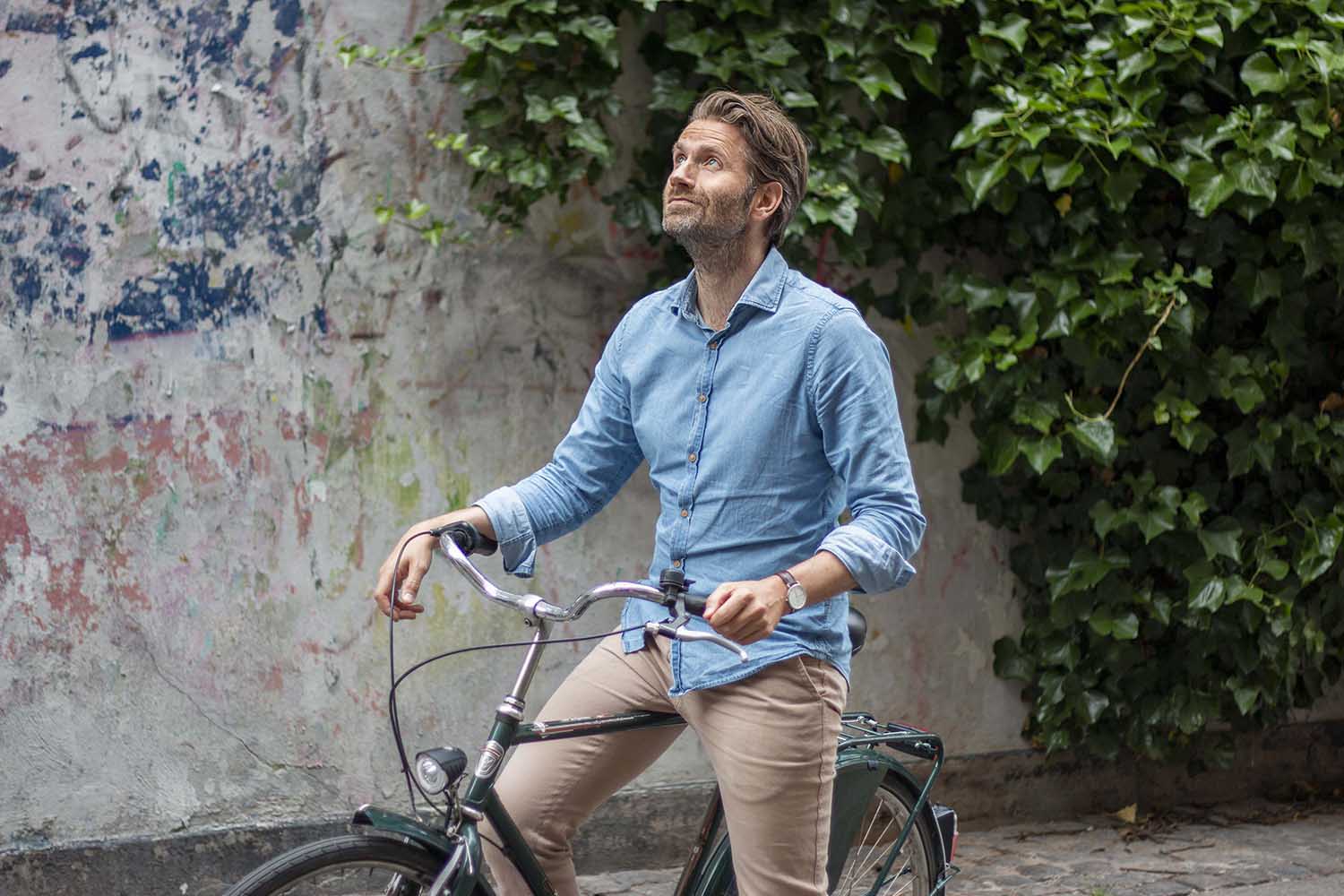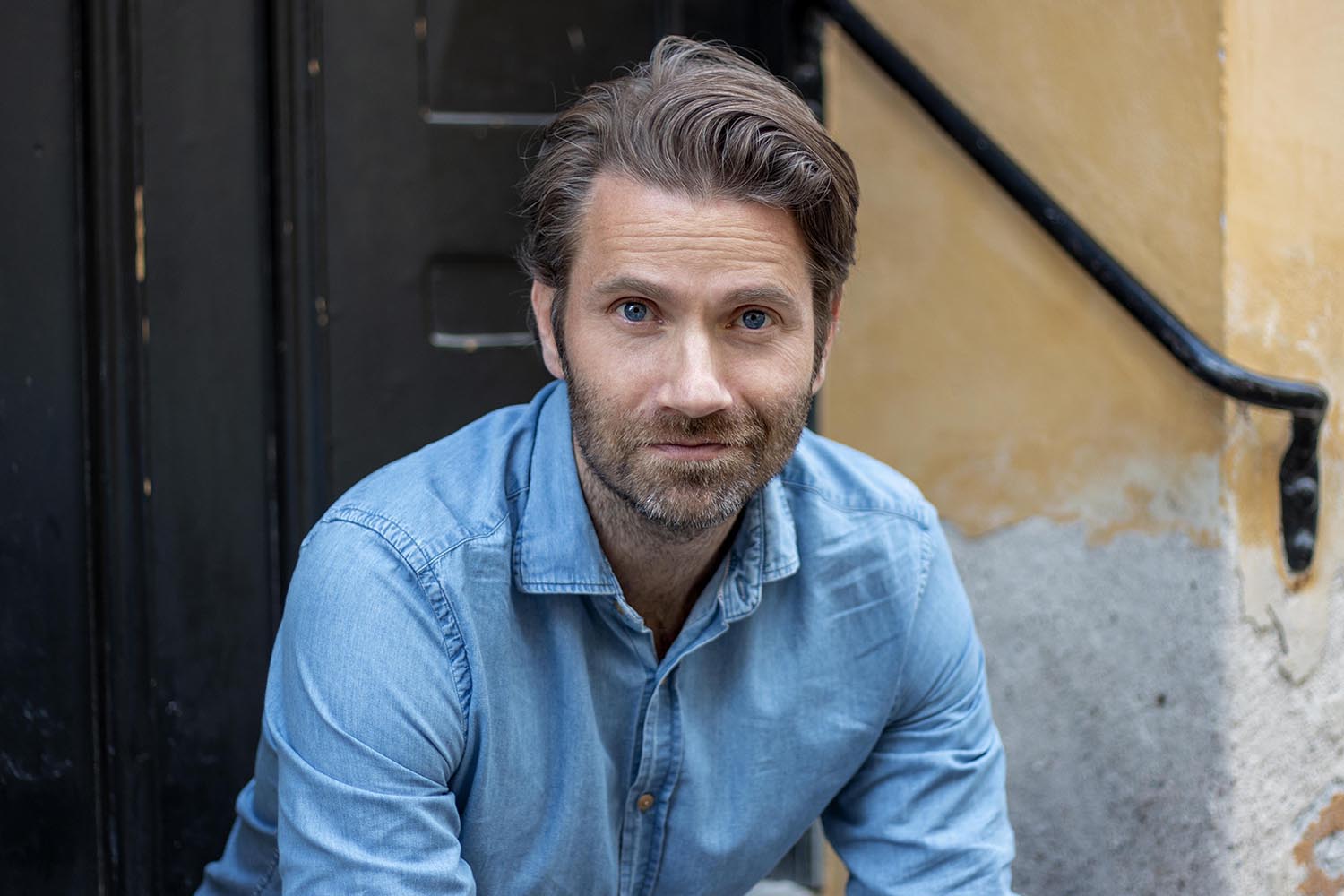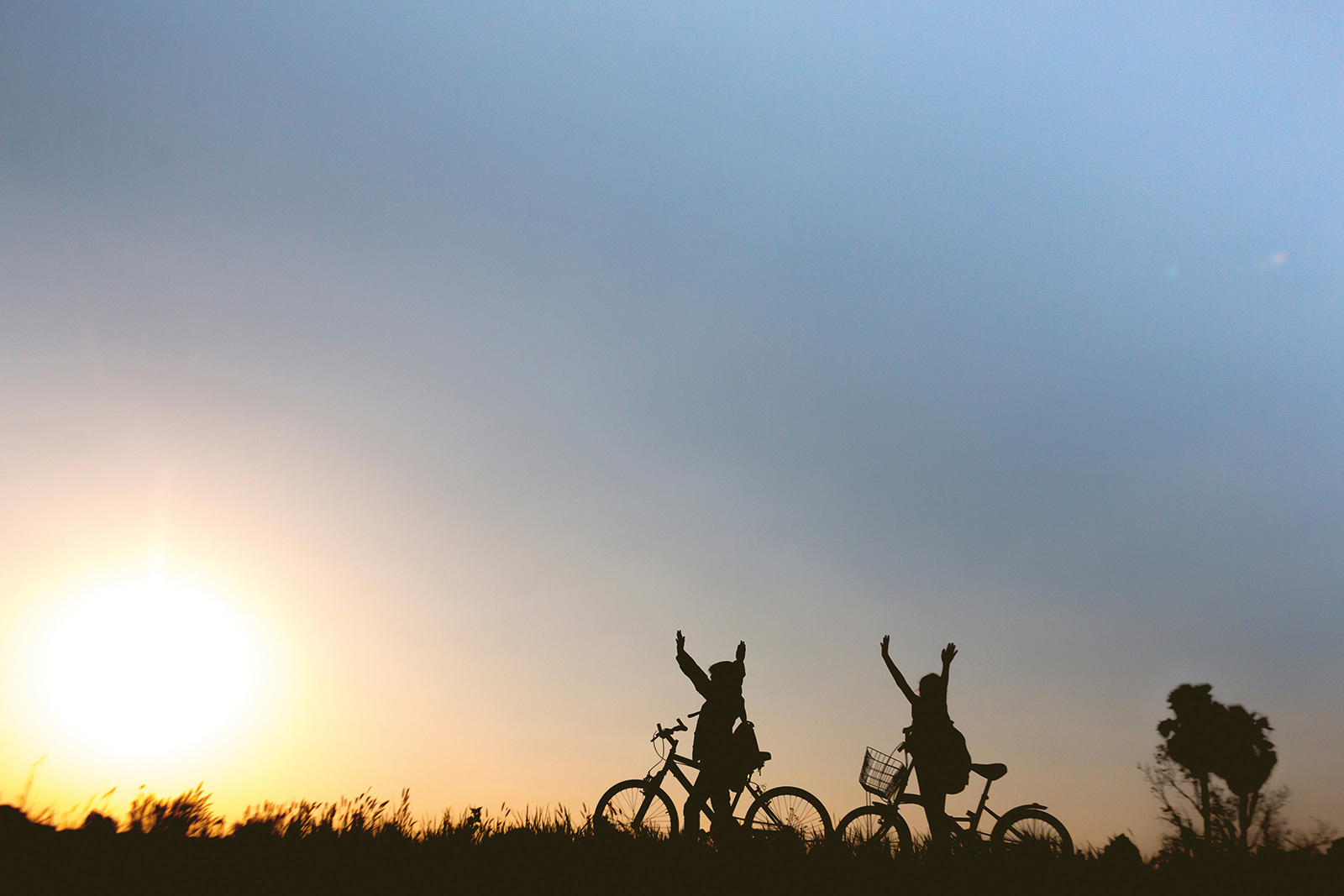What Does Happiness Really Mean? We Ask the Expert.
Happy day.

Are you happy? It’s not a simple question. At times, it feels like the question is loaded with the weight of your success or failure. As if you’re broken or wrong if your answer is no. We have the sense that happiness is something we need to be vigilant about—it needs to be nurtured and taken care of because by the time you reach that “no”, you may have no idea how you got there, or worse, how to get back.
Meik Wiking, author of The Little Book of Hygge and CEO of the Happiness Research Institute in Copenhagen, is perhaps the happiest man in the world. He is very adamant about the “perhaps” and makes it clear that the title was bestowed on him by a journalist. Happiest or not, his smile is easy and infectious. When I ask him if he feels pressure to be happy all the time, he says no without a moment’s hesitation. “On the contrary,” he states, “I think I have a responsibility to say that I get unhappy and stressed and frustrated and angry just as much as the next person, and that is part of the human experience.” He points out that in every part of human life, there will be times of happiness (hopefully), struggle, and heartbreak. He uses this perspective to investigate policy, workplaces, and the choices that we make on a daily basis in order to determine where we can lend ourselves a helping hand, of sorts, to increase our chances at happiness.
When you break it down, happiness has two layers: the feeling, and what people identify as the cause of the feeling. According to Wiking, the second layer is similar around the world: connection, purpose in life, health, and food are universal causes of happiness. It’s a romantic notion to be sure, but Wiking has the data to back it up.
Wiking points out that in every part of human life, there will be times of happiness (hopefully), struggle, and heartbreak.
“We try to look at happiness from a scientific perspective,” he explains. “It is subjective and integral, but what are the drivers?” The team at the institute has broken happiness into different components, taking the same approach as stress, loneliness, and depression researchers, and then following people over time, asking them to report on their happiness levels over the course of their lives. The data comes from calculating the average effect of life events such as marriage, divorce, or a rise in income on happiness levels. “You are the only one who can tell us if you’re happy or not,” he says. “That is what we put at the core of our understanding.”
He outlines the commonalities between health and happiness: genetics, country you live in, choices you make on a daily basis—they’re the same factors for both. People who live in rural areas are reportedly happier than those who live in the city. Canada is consistently ranked one of the top-10 happiest countries, and Syria and Afghanistan are usually among the unhappiest. Thanks to daily smartphone check-ins, the institute knows that in 2016, November 9 was the unhappiest day in the U.S. Uncoincidentally, it was also the day after Donald Trump was elected.

Meik Wiking, author of The Little Book of Hygge and CEO of the Happiness Research Institute in Copenhagen, is perhaps the happiest man in the world.
Wiking’s research on happiness led him to write The Little Book of Lykke, a global treasure hunt for happiness, and The Art of Making Memories, a guide to creating and holding on to happiness. The process of doing research for the two books has also afforded him a great deal of wisdom about unhappiness. “When we enter depression, not only are we not happy right now, but we struggle to remember any time in the past when we were happy,” he says. “What we can do sometimes is we can outsource our memory into the things we surround ourselves with.” Andy Warhol did it with perfume—he switched his fragrance every three months until he had a museum of scent that would remind him of different periods of his life. “Planting triggers around us will help our memory, when we need it the most, resurface some of the happy experiences that we have had,” he promises.
It is easy to believe that we have no control over our own happiness, especially in the midst of what some are calling “an epidemic of loneliness” (countries like the U.K. even have a minister for loneliness). But Wiking is certain there is a great deal of empowerment to be gained from instilling symbols with your happy memories, creating first-time experiences, and practising mindfulness. First experiences become rarer as you get older, but they don’t have to be big to matter. In The Art of Making Memories, Wiking suggests hosting an “Apollo picnic”. You would invite your friends to a picnic on July 20 and ask everyone to bring a food or ingredient they have never tried before. That way, every year when the media commemorate the Apollo 11 moon landing, you will be reminded of that experience.
In France, people spend more time eating than anywhere else in the world. In Bhutan, they practise brain brushing, while in Japan they forest bathe, taking purposeful steps towards creating a happy environment for themselves. Wherever you are in the world and whatever works for you, happiness is attainable but it is not a requirement for living. It is not your base setting as a person and, as Wiking points out, it is not a permanent state of being. Perhaps it is easier to think of happiness as a muscle, one that needs to be exercised and requires attention every now and then, but no pressure.
________
Never miss a story. Sign up for NUVO’s weekly newsletter here.

